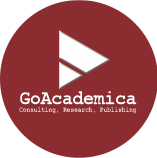THE EVOLUTION OF HUMAN RESOURCE MANAGEMENT: THE NECESSITY OF FACING THE INDUSTRIAL REVOLUTION 4.0
DOI:
https://doi.org/10.15575/jim.v4i1.23726Keywords:
Evolution, Personnel Management, Human Resource Management, Human Capital, Industrial Revolution 4.0.Abstract
The management of human resources in today's organizations presents a challenge from a strategic perspective. In order to successfully usher in the era of the Industrial Revolution 4.0, it is essential to realign the new business culture with the empowerment of behavior and performance that is required as part of the individual and organizational learning process. The purpose of this study is to investigate how human resource management has developed in response to Industry 4.0. This research is qualitative, and it employs a qualitative approach in conjunction with a descriptive methodology. The findings of the study indicate that human resource management is a strategic partner for organizations, which in turn generates optimism within those organizations in light of the fourth industrial revolution and VUCA. This study investigates the various epochs in the development of HRM, beginning with personnel management and moving on to human resource management and finally human capital management.
References
Gomes, D. R. (2009). Organizational change and job satisfaction: The mediating role of organizational commitment. Exedra: Revista CientÃfica, (1), 177-195.
Hariandja, M. T. E. (2002). Manajemen sumber daya manusia. Grasindo.
Hendra Permadi, S. T. (2018). Perubahan Lingkungan Bisnis Dan Peran Manajemen Sumber Daya Manusia. Jurnal STIE Ganesha (Manajemen dan Bisnis), 2(1), 99-110.
Labola, Y. A. (2019). Konsep pengembangan sumber daya manusia berbasis kompetensi, bakat dan ketahanan dalam organisasi. Jurnal Manajemen & Kewirausahaan, 7(1), 28-35.
Manullang, M. (2008). Manajemen personalia. Yogyakarta: UGM Press.
Moleong, L. J. (2014). Metode penelitian kualitatif edisi revisi. Bandung: PT Remaja Rosdakarya.
Ng, T. W., & Feldman, D. C. (2008). The relationship of age to ten dimensions of job performance. Journal of applied psychology, 93(2), 392.
Nurjaman, K. (2014). Manajemen personalia. Bandung: Pustaka Setia.
Paramansyah, H. A., SE, M., Husna, A. I. N., & Sos, S. (2021). Manajemen Sumber Daya Manusia Dalam Perspektif Islam. Almuqsith Pustaka.
Sabrina, R. (2021). Manajemen Sumber Daya Manusia (Vol. 1). umsu press.
Sari, O. H., Mardia, M., Susanti, M., Munte, R. N., Sudarso, A., Ramlah, P., ... & Ashoer, M. (2022). Manajemen UKM. Yayasan Kita Menulis.
Schuler, R. S., Budhwar, P. S., & Florkowski, G. W. (2002). International human resource management: review and critique. International Journal of Management Reviews, 4(1), 41-70.
Schuler, R. S., Budhwar, P. S., & Florkowski, G. W. (2002). International human resource management: review and critique. International Journal of Management Reviews, 4(1), 41-70.
Sinambela, L. P. (2021). Manajemen Sumber Daya Manusia: Membangun tim kerja yang solid untuk meningkatkan kinerja. Bumi Aksara.
Sisibintari, I. (2015). Transformasi Organisasi: Basis Peningkatan Sumber Daya Manusia dalam Memperkuat Daya Saing. Jurnal Al-Azhar Indonesia Seri Pranata Sosial, 2(2), 119-132.
Sobirin, A. (2014). Organisasi dan Perilaku Organisasi. Budaya Organisasi, Pengertian, Makna Dan Aplikasinya, 1, 72.
Sparrow, P. R. (2007). Globalization of HR at function level: four UK-based case studies of the international recruitment and selection process. The International Journal of Human Resource Management, 18(5), 845–867.
Strohmeier, S., & Kabst, R. (2009). Organizational adoption of eâ€HRM in Europe: An empirical exploration of major adoption factors. Journal of Managerial Psychology.
Suprihanto, J., & Putri, L. P. (2021). Manajemen Sumber Daya Manusia. UGM PRESS.
Suryani, N. L. (2020). Manajemen Sumberdaya Manusia: Konsep dan Praktek. Desanta Publisher.
Tampubolon, M. P. (2020). CHANGE MANAGEMENT: Manajemen Perubahan: Individu, Tim Kerja, Organisasi.
Tun Huseno, S. E. (2021). Kinerja pegawai: Tinjauan dari dimensi kepemimpinan, misi organisasi, budaya organisasi dan kepuasan kerja. Media Nusa Creative (MNC Publishing).
Warsono, S. E. (2017). Pengaruh Globalisasi Terhadap Manajemen Sumber Daya Manusia. Jurnal STIE Ganesha (Manajemen dan Bisnis), 1(1), 66-75.
Widiyaningrum, A. (2014). Modal intelektual. Jurnal Akuntansi dan Keuangan Indonesia, 1(1), 16-25.
Wößmann, L. (2003). Specifying human capital. Journal of economic surveys, 17(3), 239–270.
Downloads
Published
How to Cite
Issue
Section
Citation Check
License

This work is licensed under a Creative Commons Attribution-ShareAlike 4.0 International License.













